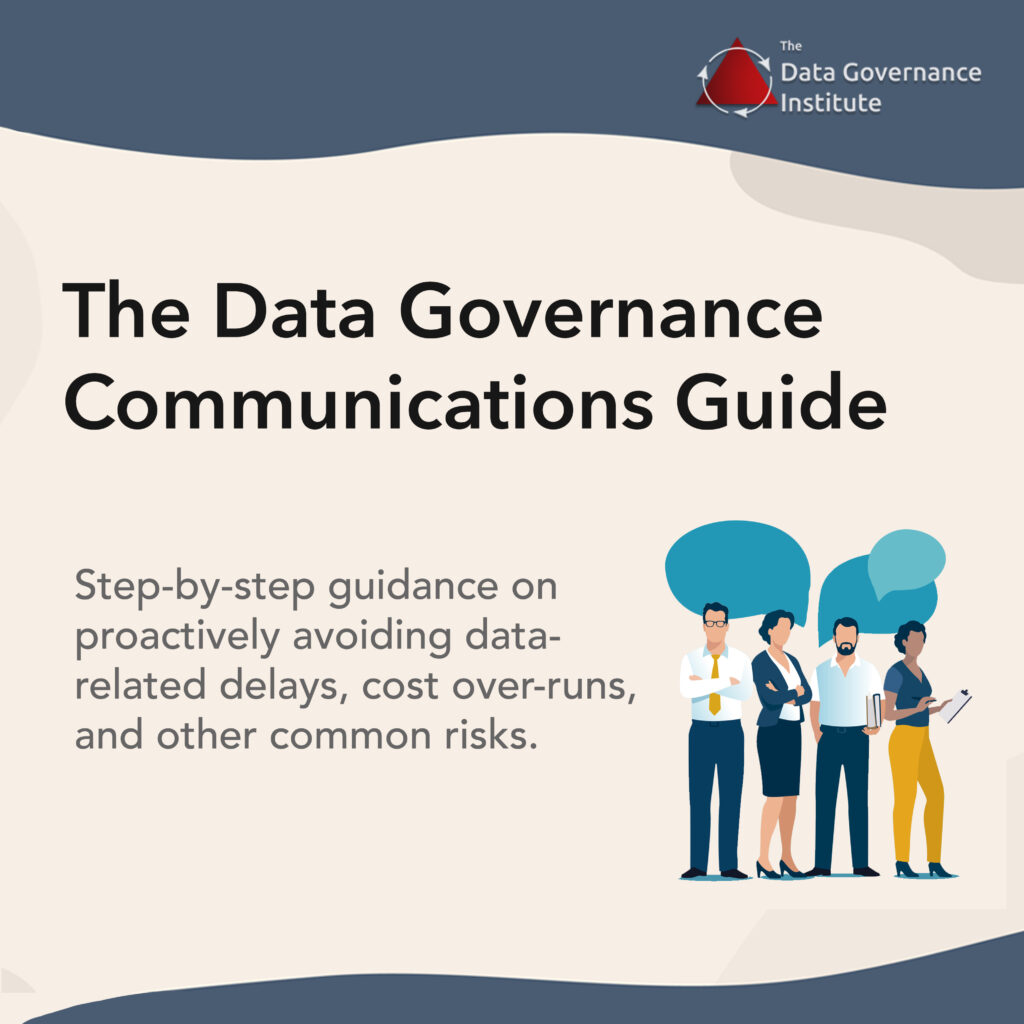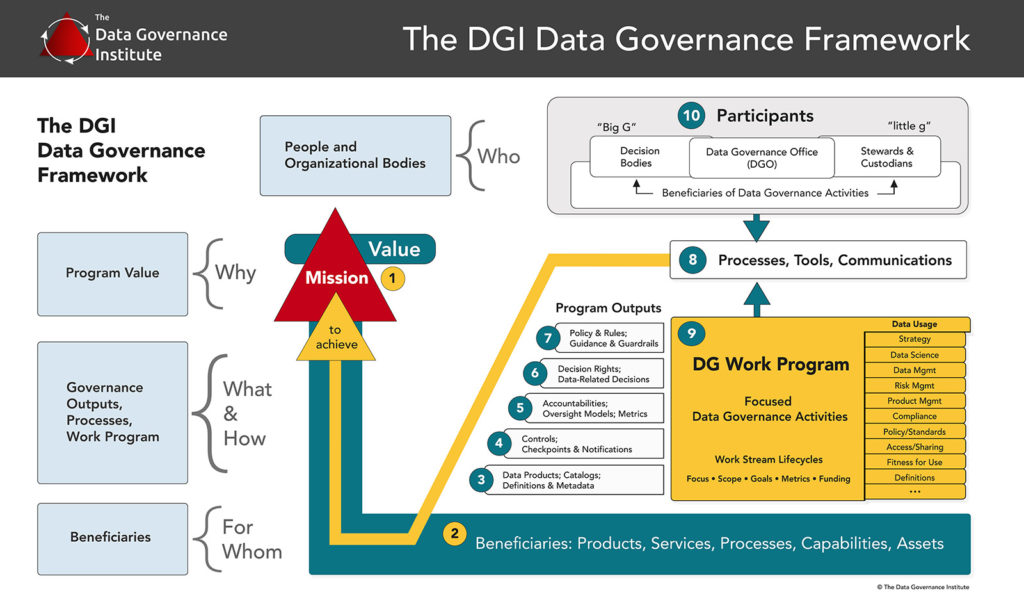Should leaders of Data Governance programs get involved in corporate politics?
That’s a trick question, because the truth is that it’s unavoidable. After all, politics are all around us. They affect what gets done, and who does it. They affect how decisions are made, compromises are brokered, and programs are supported. Wherever three or more people are working together to set agendas, then there are politics.

But it’s essential that Data Governance and Stewardship program facilitators avoid being “caught up” in politics. It’s our jobs to acknowledge the realities of the situations we work with, while avoiding taking sides or engaging in behaviors that could be perceived as favoring one set of data stakeholders at the expense of others.
How do we do this? It helps to step back and look at the bigger picture.
One useful definition of politics is “the process of allocating scarce resources.” That makes sense. In your organization, is there enough money to fund every project desired by every group? Of course not. Do you have all the resource – human, technical, other – you could ever want? I’ll bet not. Do departments have to compete for funding, executive attention, and other resources? Probably.
Done right, Data Governance leaders and processes can bring transparency and fairness to this competition.
I’ve seen descriptions of Data Governance programs that focus on concepts such as authority, power, and control. And yes, I agree that – bottom line – there are situations in which standards must be imposed upon teams and individuals working with data. Sometimes it is the Data Governance function that must impose this.
But in my observation, successful Data Governance efforts focus less on power and more on persuasion. Less on control and more on consensus-building. Less on “because I said so” and more on “because this is why it’s the best thing to do.”
Think about typical Data Governance processes:
- Making, collecting, and aligning rules
- Change management
- Resolving issues
- Developing standards
- Harmonizing data definitions
All of these processes require multiple perspectives, input from representatives of different organizational silos, and facilitation by a trusted party.
As a Data Governance facilitator, you must be a “trusted broker” of information. You must strive to infuse Data Governance principles into Data Governance and Stewardship activities. You must help participants faced with inherent conflicts-of-interest to collaboratively agree on common outcomes.
A caveat: Don’t assume your most highly knowledgeable staff should be your Data Governance facilitators. A contentious person – or one who is a poor communicator – can do your program more harm than good. Choose your facilitators for their communication skills, their ability to broker agreements, and how well they are respected by data stakeholders. Put data experts in the room to support them if needed.



